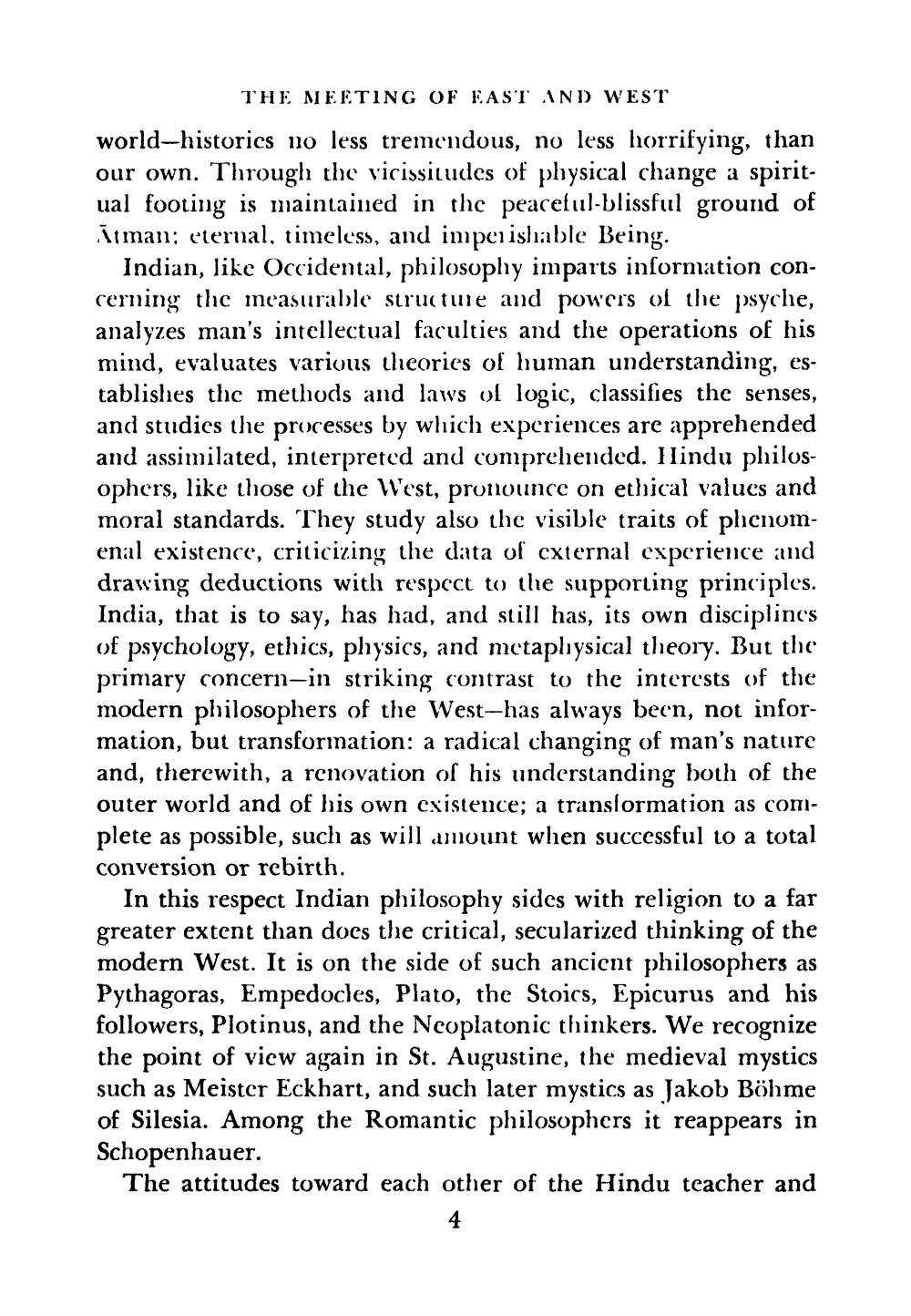________________
THE MEETING OF EAST AND WEST
world-historics no less tremendous, no less horrifying, than our own. Through the vicissitudes of physical change a spiritual footing is maintained in the peaceful-blissful ground of Atman: eternal, timeless, and imperishable Being.
Indian, like Occidental, philosophy imparts information concerning the measurable structure and powers of the psyche, analyzes man's intellectual faculties and the operations of his mind, evaluates various theories of human understanding, establishes the methods and laws of logic, classifies the senses, and studies the processes by which experiences are apprehended and assimilated, interpreted and comprehended. Hindu philosophers, like those of the West, pronounce on ethical values and moral standards. They study also the visible traits of phenomenal existence, criticizing the data of external experience and drawing deductions with respect to the supporting principles. India, that is to say, has had, and still has, its own disciplines of psychology, ethics, physics, and metaphysical theory. But the primary concern-in striking contrast to the interests of the modern philosophers of the West-has always been, not information, but transformation: a radical changing of man's nature and, therewith, a renovation of his understanding both of the outer world and of his own existence; a transformation as complete as possible, such as will amount when successful to a total conversion or rebirth.
In this respect Indian philosophy sides with religion to a far greater extent than does the critical, secularized thinking of the modern West. It is on the side of such ancient philosophers as Pythagoras, Empedocles, Plato, the Stoics, Epicurus and his followers, Plotinus, and the Neoplatonic thinkers. We recognize the point of view again in St. Augustine, the medieval mystics such as Meister Eckhart, and such later mystics as Jakob Böhme of Silesia. Among the Romantic philosophers it reappears in Schopenhauer.
The attitudes toward each other of the Hindu teacher and
4




